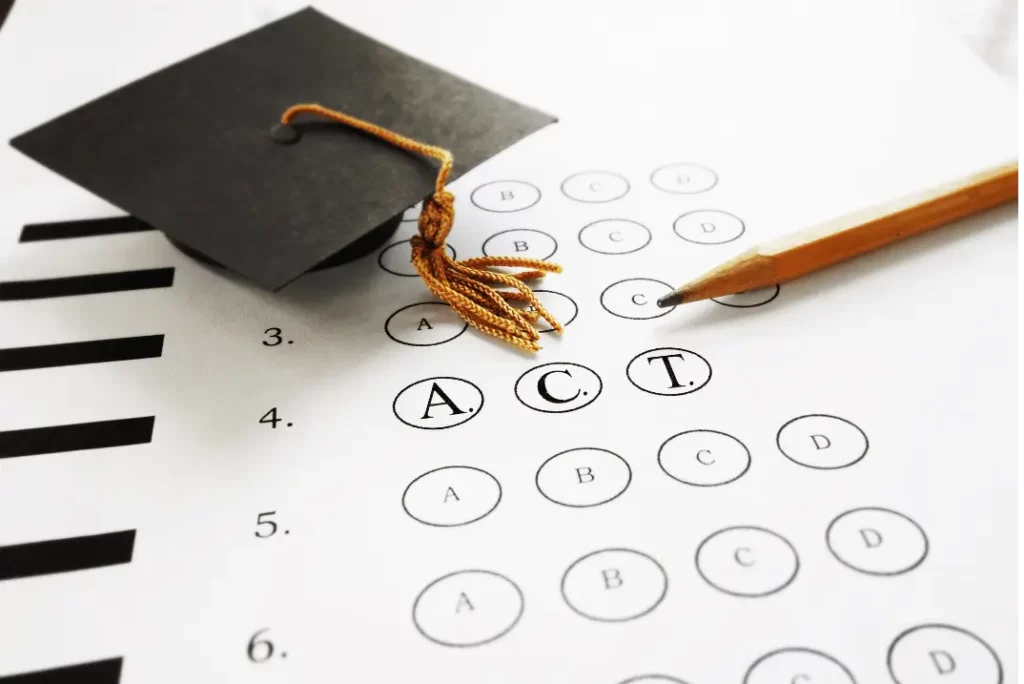
Illinois high school students are rethinking their standardized testing plans. Following an announcement by the Illinois State Board of Education (ISBE), the ACT will replace the SAT as the state’s high school accountability assessment. This transition will influence how Illinois high school students prepare for college admissions tests, so it’s important to stay up-to-date on the impact of this change.
Understanding the Transition from SAT to ACT
Beginning in 2025, high school students attending public school in Illinois will be required to take the ACT to graduate. The SAT has been the state’s predominant college admissions exam for the last eight years, but when the ISBE contract with the College Board ends on June 30th, 2024, the ACT will take its place. The ISBE made the decision to switch based on technical specifications, commitment to diversity, and price.
Key takeaways:
- Testing is still free. Illinois students will continue to administer free, in-school testing in the Spring for high school juniors.
- The ACT will be digital. All of the testing administered through the new contract will be done online. The digital ACT is the same as the paper ACT… just online, which allows for more accommodations.
- PSAT/NMSQT is no longer required. Unlike with the last contract, Illinois high schools will no longer be required to administer the PSAT/NMSQT, a qualifying test for the National Merit Scholarship. Schools can still choose to administer this exam, so reach out to your administration If you’re interested in taking the PSAT/NMSQT.
- The contract will expire in six years. The ISBE’s contract with ACT, Inc. expires at the end of the 2029-2020 school year.
- You can still take the SAT. While your high school won’t require the SAT or offer it for free, you can still register for the SAT through the College Board.
Important differences between the SAT and ACT

To understand the significance of this transition, it’s important to understand the fundamental differences between the SAT and the ACT:
Content:
- SAT: one section on reading and writing, one section on math (both with and without a calculator), and an optional essay.
- ACT: sections on English, math, reading, science, and an optional writing test.
Time Management:
- SAT: 2 hours and 14 minutes to answer 90 questions, generally allowing more time per question, making it less time-pressured.
- ACT: 2 hours and 55 minutes to answer 215 questions, requiring quick responses.
Test Style:
- SAT: emphasizes critical thinking and problem-solving skills, often requiring more in-depth analysis.
- ACT: known for its straightforward questions and quick pace.
Subject Focus:
- SAT: has a strong emphasis on math and evidence-based reading and writing.
- ACT: includes a science section, testing interpretation, analysis, evaluation, reasoning, and problem-solving skills. Better for students
Scoring:
- SAT: scored on a scale of 400-1600.
- ACT: scored on a scale of 1-36.
Essay:
- SAT: Optional essay in which you’re asked to read a passage then write an essay in response to a prompt about the passage.
- ACT: Optional essay consisting of one writing prompt in which you’re asked to respond to a prompt regarding a complex issue by developing and writing your own perspective..
Preparing for the Illinois ACT

With the transition, Illinois students will need to adapt their test preparation strategies to a new test. Here are some tips on preparing for the ACT:
Learn the ACT format.
Understanding the structure and content of the ACT is crucial, especially because it is much faster-paced than the SAT. Students should become comfortable with the types of questions asked and the test’s timing.
Target your weak areas.
Since the ACT spans many subjects, it’s important learn and improve upon on weak spots, whether it’s brushing up on calculus for the math section or working on your analytical skills for the science section.
Stay consistent.
Consistent, focused studying is more effective than last-minute cramming. We recommend getting on a regular schedule of 15-30 minutes a day for a set amount of time. Setting a regular study schedule and sticking will help build confidence and momentum going into the test.
FAQs
If my student already took the ACT, do they have to take it again as a junior?
Yes. To fulfill federal requirements, all students must take the ACT in their junior year when it is administered on a specific day in the spring of 2025.
When will Illinois students start taking the ACT?
Juniors will start taking the ACT this up-coming school year in the spring 2025. Sophomores will take the preACT Secure, and freshman will take the preACT 9 Secure.
Will the ACT offer the same access to accommodations?
Yes. The same accommodations available for the SAT will be available for students taking the ACT.
Will the ACT offer free resources?
Yes. The ACT will offer free practice tests and resources for students and educators.
Conclusion
The new transition from SAT to ACT is a big shift for Illinois high school students. For students, educators, and parents, adapting to this change is essential. By using available resources, adjusting preparation strategies, and focusing on the key differences between the tests, Illinois students can successfully navigate this transition. HelloCollege’s expertise and support will be key in helping students and schools meet the new challenges and opportunities presented by the ACT.
HelloCollege is already assisting Illinois students during this transition from the SAT to the ACT. We offer live online group instruction, one-on-one tutoring sessions, and test-taking strategies proven to raise students’ scores. Learn more about our ACT Test Prep Services and to get ahead on your college admissions exam.








